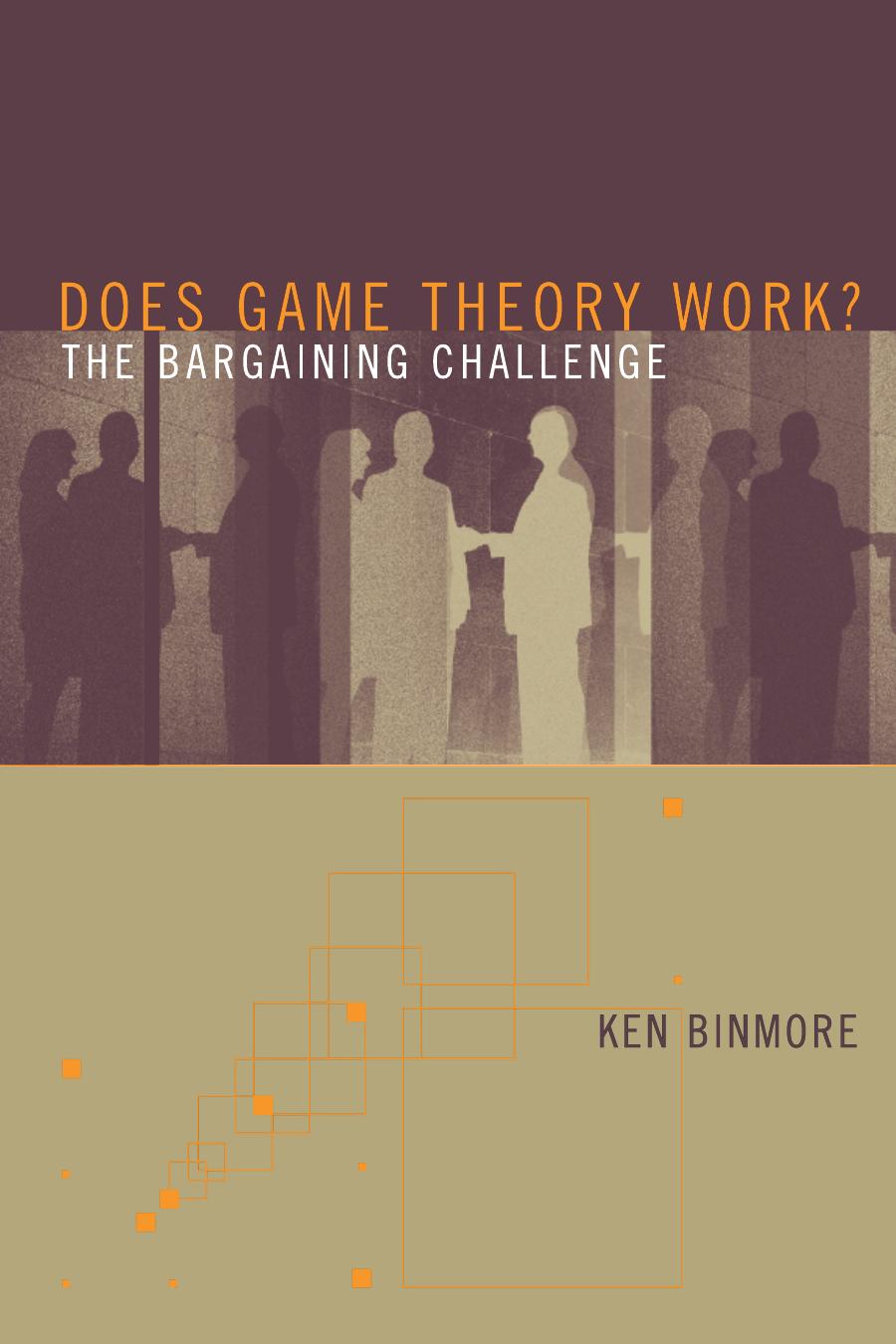

Most ebook files are in PDF format, so you can easily read them using various software such as Foxit Reader or directly on the Google Chrome browser.
Some ebook files are released by publishers in other formats such as .awz, .mobi, .epub, .fb2, etc. You may need to install specific software to read these formats on mobile/PC, such as Calibre.
Please read the tutorial at this link: https://ebookbell.com/faq
We offer FREE conversion to the popular formats you request; however, this may take some time. Therefore, right after payment, please email us, and we will try to provide the service as quickly as possible.
For some exceptional file formats or broken links (if any), please refrain from opening any disputes. Instead, email us first, and we will try to assist within a maximum of 6 hours.
EbookBell Team

0.0
0 reviewsWhen Binmore began his experimental work in the 1980s, conventional wisdom held that game theory would not work in the laboratory, but Binmore and other pioneers established that game theory can often predict the behavior of experienced players very well in favorable laboratory settings. The case of human bargaining behavior is particularly challenging for game theory. Everyone agrees that human behavior in real-life bargaining situations is governed at least partly by considerations of fairness, but what happens in a laboratory when such fairness considerations supposedly conflict with game-theoretic predictions? Behavioral economists, who emphasize the importance of other-regarding or social preferences, sometimes argue that their findings threaten traditional game theory. Binmore disputes both their interpretations of their findings and their claims about what game theorists think it reasonable to predict.
Binmore's findings from two decades of game theory experiments have made a lasting contribution to economics. These papers—some co-authored with other leading economists, including Larry Samuelson, Avner Shaked, and John Sutton—show that game theory does indeed work in favorable laboratory environments, even in the challenging case of bargaining.